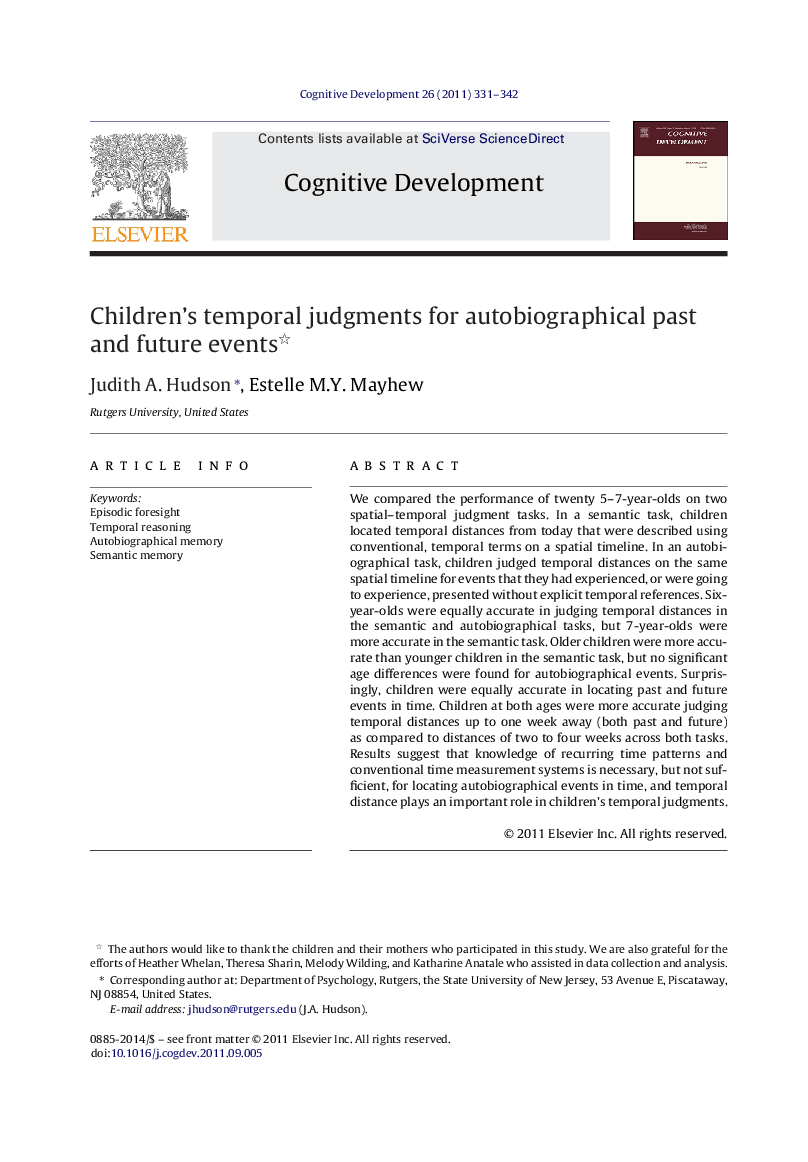| Article ID | Journal | Published Year | Pages | File Type |
|---|---|---|---|---|
| 916555 | Cognitive Development | 2011 | 12 Pages |
We compared the performance of twenty 5–7-year-olds on two spatial–temporal judgment tasks. In a semantic task, children located temporal distances from today that were described using conventional, temporal terms on a spatial timeline. In an autobiographical task, children judged temporal distances on the same spatial timeline for events that they had experienced, or were going to experience, presented without explicit temporal references. Six-year-olds were equally accurate in judging temporal distances in the semantic and autobiographical tasks, but 7-year-olds were more accurate in the semantic task. Older children were more accurate than younger children in the semantic task, but no significant age differences were found for autobiographical events. Surprisingly, children were equally accurate in locating past and future events in time. Children at both ages were more accurate judging temporal distances up to one week away (both past and future) as compared to distances of two to four weeks across both tasks. Results suggest that knowledge of recurring time patterns and conventional time measurement systems is necessary, but not sufficient, for locating autobiographical events in time, and temporal distance plays an important role in children's temporal judgments.
